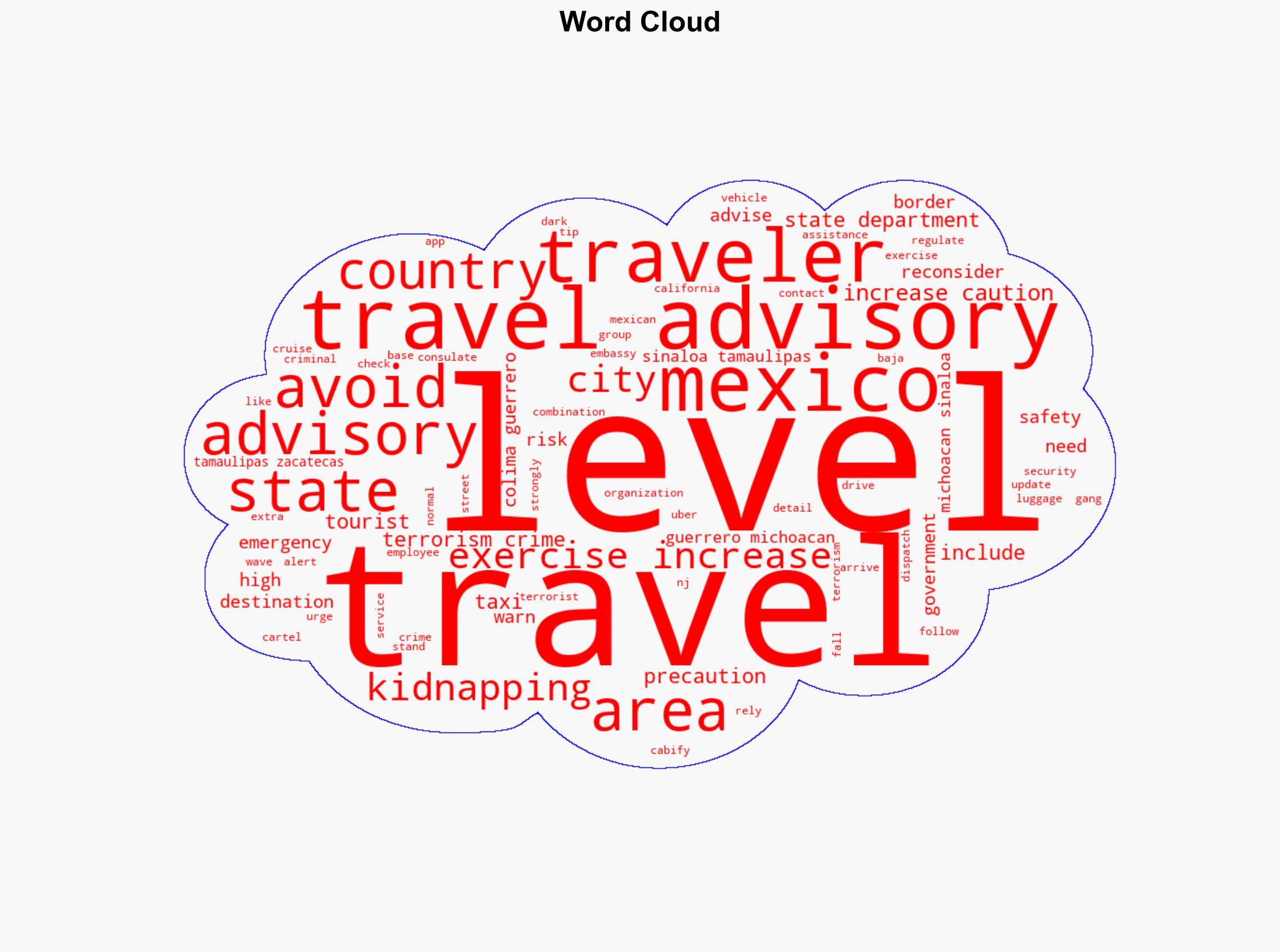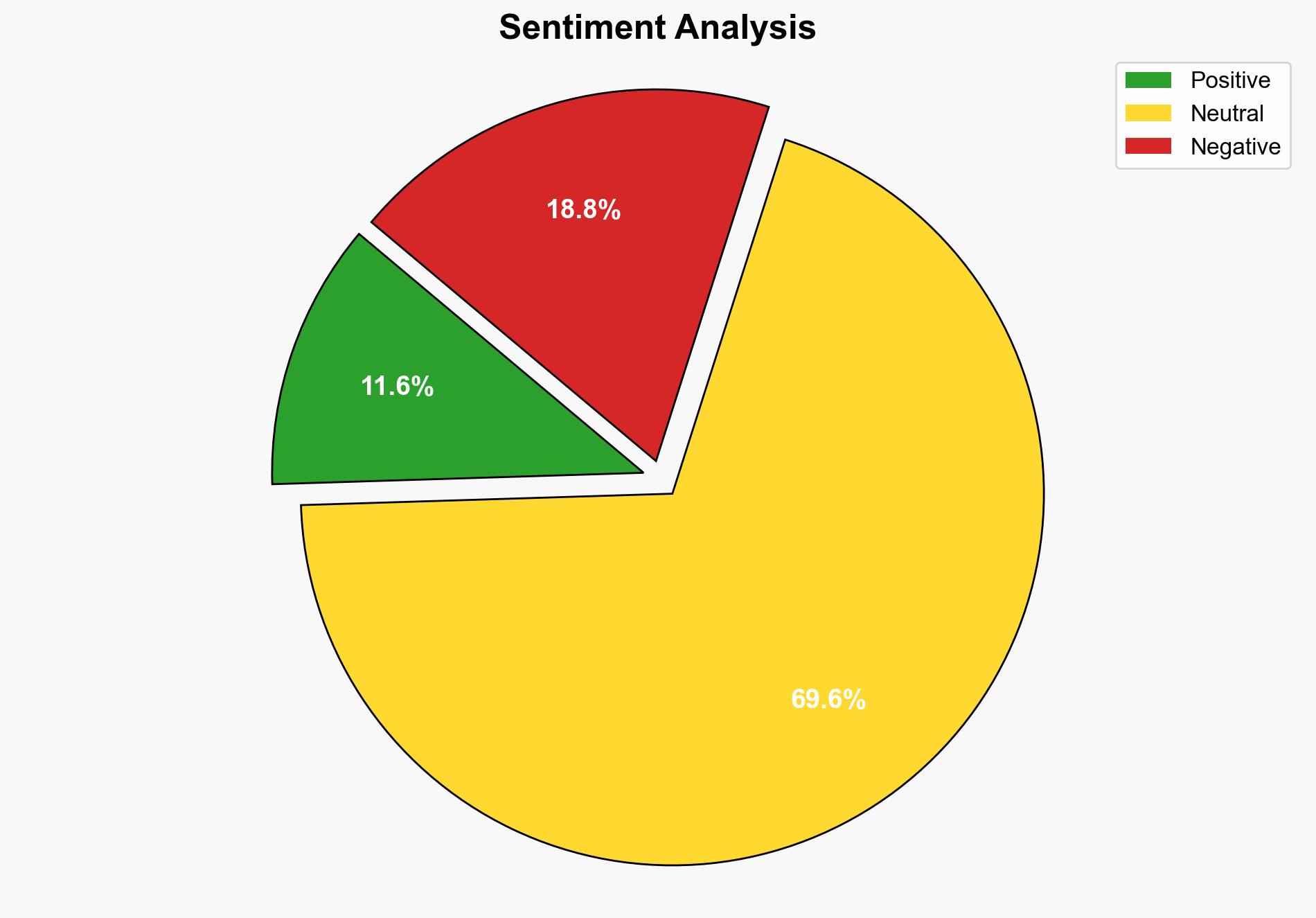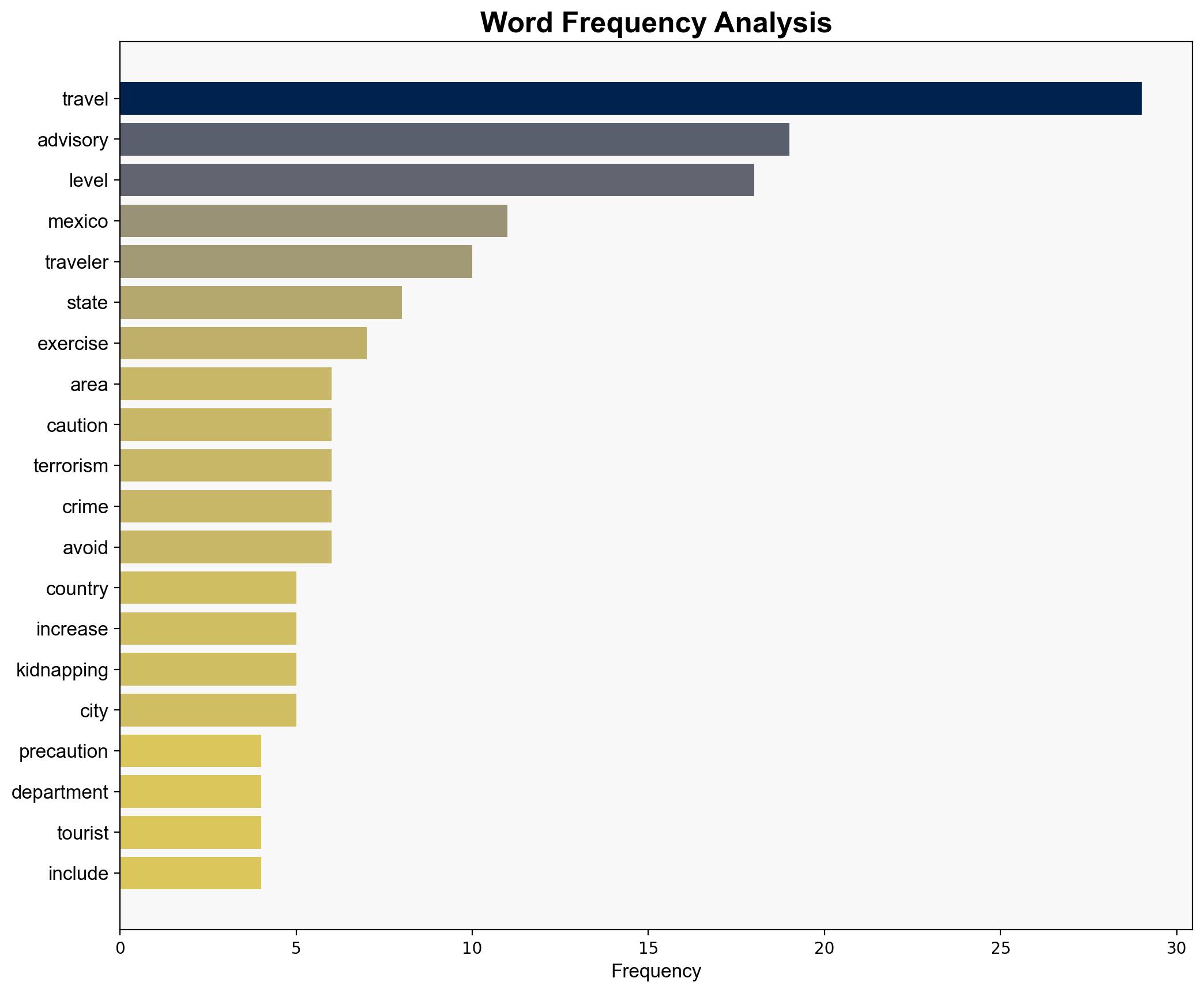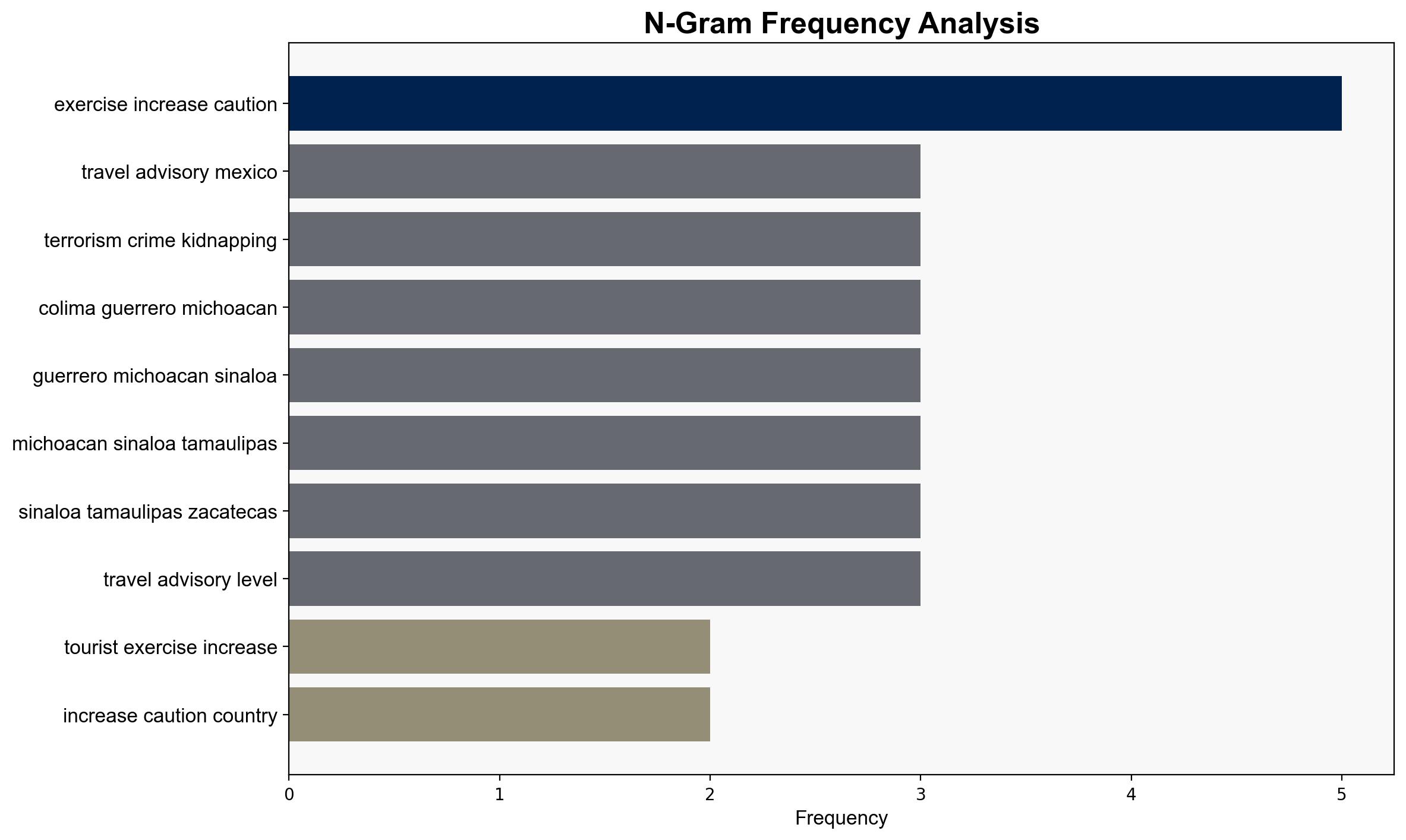US warns tourists do not travel to sections of popular vacation spot – nj.com
Published on: 2025-08-12
Intelligence Report: US warns tourists do not travel to sections of popular vacation spot – nj.com
1. BLUF (Bottom Line Up Front)
The U.S. State Department has issued a travel advisory for specific regions in Mexico due to heightened risks of crime, terrorism, and kidnapping. The most supported hypothesis is that the advisory is a response to credible intelligence about increased cartel and gang activities in these areas. Confidence level: High. Recommended action: Travelers should adhere to the advisory, and relevant agencies should enhance intelligence-sharing with Mexican authorities to mitigate risks.
2. Competing Hypotheses
1. **Hypothesis A**: The travel advisory is based on recent intelligence indicating an uptick in cartel and gang activities, posing a direct threat to tourists and U.S. nationals in the specified regions.
2. **Hypothesis B**: The advisory is a precautionary measure due to general instability in the region, without specific intelligence of imminent threats, aimed at reducing liability and ensuring traveler safety.
Using ACH 2.0, Hypothesis A is better supported by the specificity of the advisory, which targets regions known for cartel influence and recent incidents. Hypothesis B lacks direct evidence of immediate threats but reflects a broader risk management approach.
3. Key Assumptions and Red Flags
– **Assumptions**: The advisory assumes that tourists are at significant risk due to cartel activities. It also presumes that avoiding these areas will mitigate the threat.
– **Red Flags**: The advisory does not specify the nature of the intelligence or recent incidents prompting the warning, which could indicate either a lack of detailed information or an attempt to avoid public panic.
– **Blind Spots**: Potential underestimation of the capability of local law enforcement to manage threats.
4. Implications and Strategic Risks
– **Economic**: Potential decline in tourism revenue for affected regions, impacting local economies.
– **Geopolitical**: Strained U.S.-Mexico relations if perceived as an overreaction or lack of support for Mexican authorities.
– **Psychological**: Increased fear among tourists could deter travel to Mexico broadly, beyond the specified regions.
– **Escalation Scenarios**: If cartel activities intensify, there could be broader regional instability, affecting neighboring states and potentially leading to increased U.S. involvement.
5. Recommendations and Outlook
- Enhance intelligence-sharing with Mexican authorities to address the root causes of the advisory.
- Develop targeted communication strategies to inform travelers without causing undue alarm.
- Scenario Projections:
- **Best Case**: Increased cooperation leads to a reduction in threats, allowing the advisory to be lifted.
- **Worst Case**: Escalation of violence necessitates broader advisories and potential travel bans.
- **Most Likely**: Continued advisories with periodic updates as the situation evolves.
6. Key Individuals and Entities
No specific individuals are mentioned in the source text. Entities involved include the U.S. State Department and Mexican cartels and gangs.
7. Thematic Tags
national security threats, counter-terrorism, regional focus, travel advisories, cartel violence




